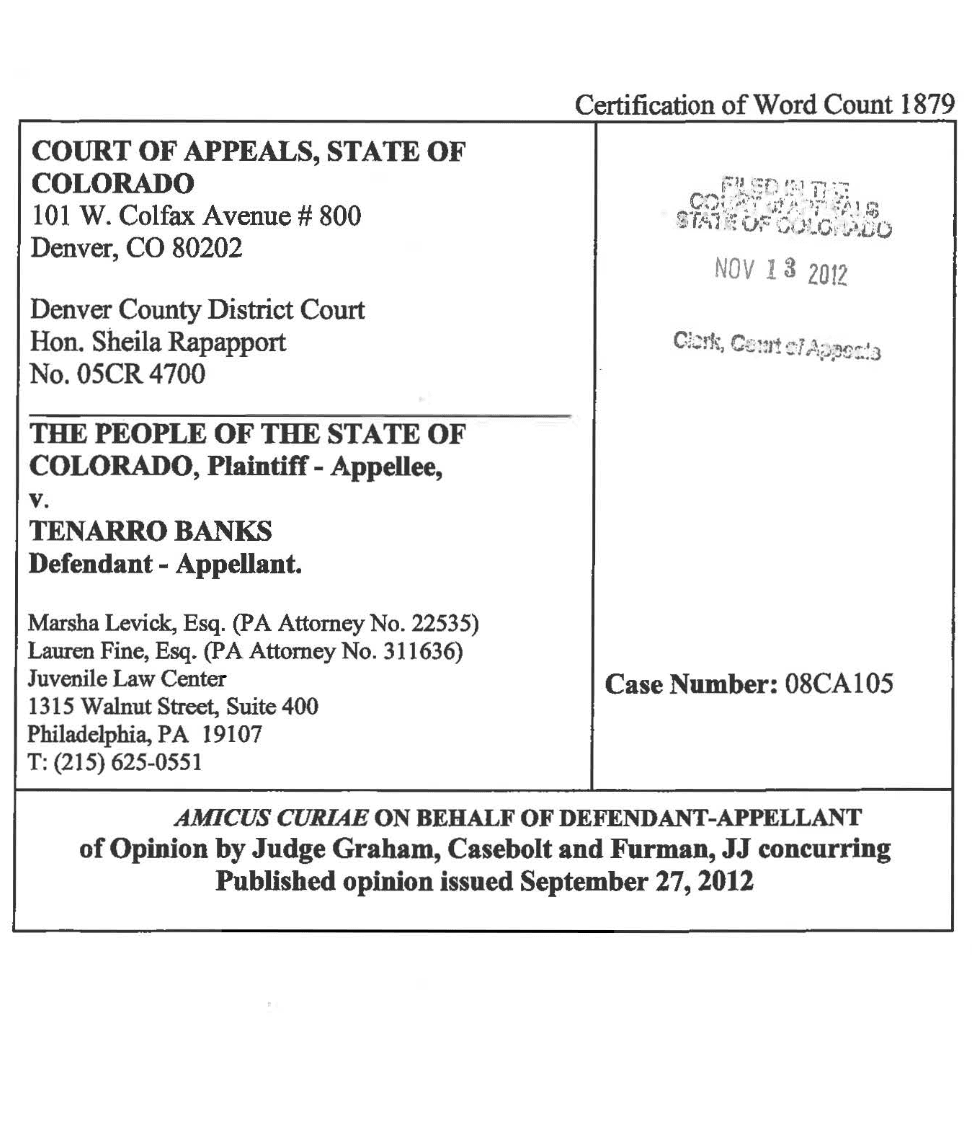
Summary of Argument
Miller reaffirms the Court's recognition that children are fundamentally different from adults and categorically less deserving of the harshest forms of punishments. Miller requires the sentencer to make an individualized sentencing determination based on a juvenile's overall culpability. This Court's sentence deprives the appellant of a meaningful opportunity for release as required by Miller and Graham.